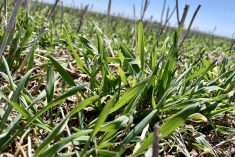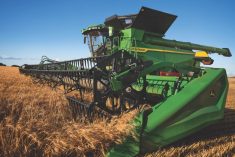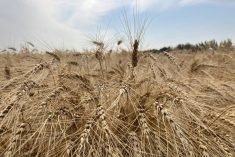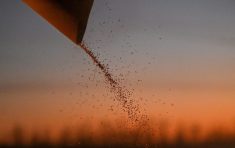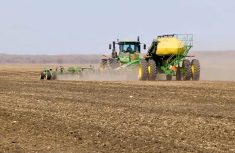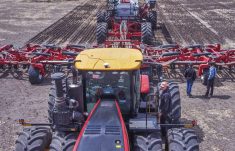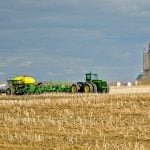Viktor and Sergiy Shipov are used to adversity.
Viktor established a farming company in southern Ukraine 20 years ago, in the Mykolaiv Oblast, where hellish heat and lack of rainfall can make the land look like the Sahara Desert with yellow dunes. This is a corner of the classic Ukrainian steppe, where rainfall is very rare.
I first visited three years ago, and immediately felt great respect for Viktor and his nephew Sergiy, who farms with him. I wondered how they could grow even a small crop of grain here.
Read Also
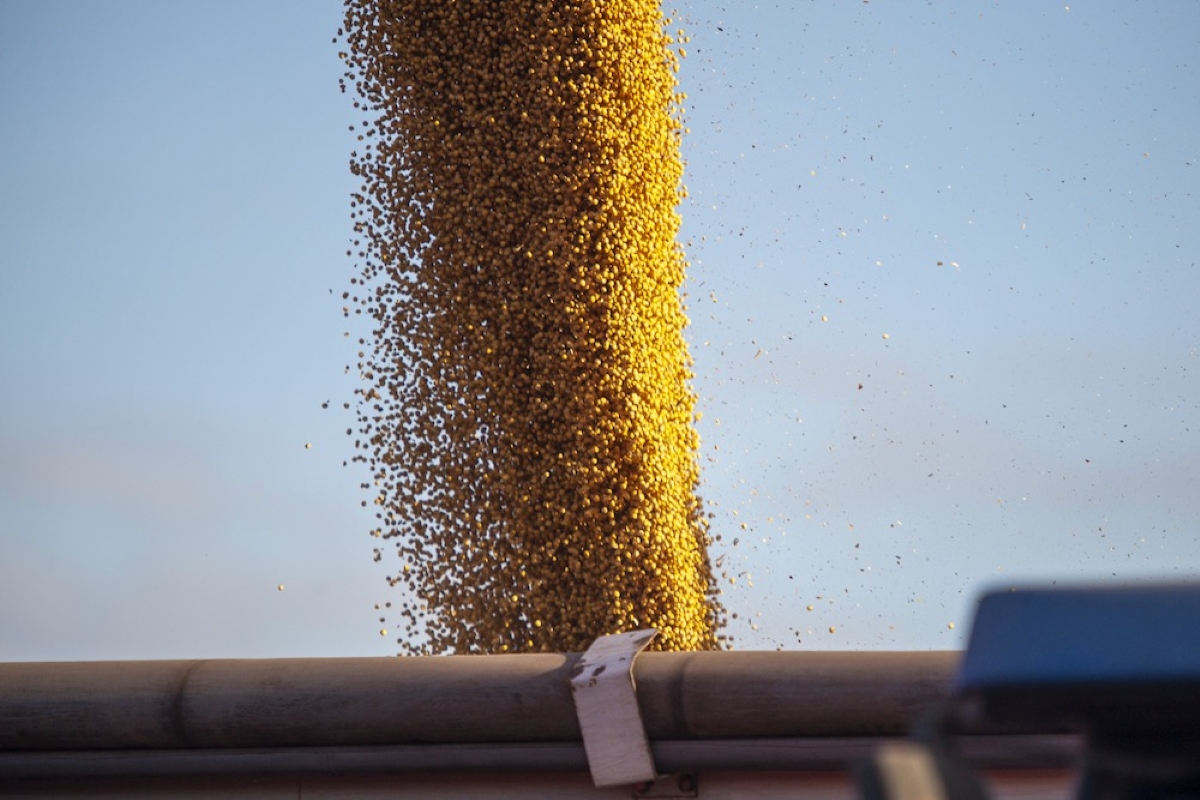
Brazil to reap record soy crop in 2025/2026, increase exports
Brazil’s Conab said the country will reap a record soybean crop of 177.6 million tons in the 2025/2026 harvest year, according to data released on Thursday.
But Sergiy, the chief agronomist, has found a way.
Under such conditions, winter wheat and barley, sunflower, winter and wild peas, as well as oil flax grow on the fields of Dmytrivka. Only these cultures can withstand this hellish heat and lack of water. At the same time, the Shipovs manage to get excellent yields — up to five tonnes per hectare of wheat and barley and more than two tonnes per hectare of sunflower. For this region, this is an excellent result.
But now, they find themselves only 80 km from the active hostilities, trying to put in a crop.
“We started the sowing campaign by removing rockets from the field,” Sergiy said. “The big ones are 50 centimetres in diameter. There were quite a few of them. After that, the seeds were sown quite quickly.”
Challenging times
While the reality of farming during a war is having to adjust plans quickly and often, so far they’ve succeeded where others have not.
A very large nearby agriculture holding won’t be able to put in a crop. They’d started seeding from the south, in the Kherson region, but the war overtook them. All of their equipment is now stuck in Russian-occupied territory.
But the Shipovs’ business continues to face challenges, too, mainly due to paralyzed logistics, leading them to find new ways to plant and grow their crops.
“All the complex fertilizers we bought remained in the occupied Nova Kakhovka, Sergiy said. “We have to do without them. However, the seller promises that he will still pay us. We have been forced to reduce fertilizer application rates, which will certainly reduce future yields.”
Victor and Sergiy Shipov cultivate 5,000 hectares of land. About 60 per cent of this area is occupied by winter wheat.
“We reduced the area under sunflower, sowed quite a lot of peas, and most importantly, increased the area under oil flax,” Sergiy said. Surprisingly, the demand for this crop is constantly increasing. Moreover, buyers themselves come and export flaxseeds to Europe. Now the logistics factor is critically important for us.”
Those logistics are critical, and challenged. Right now more than 1,000 tonnes of sunflower seed are still stored on the farm, which is the equivalent of US$1 million. And right now, it’s impossible to sell this product. The Shipovs tried to send it to the westernmost ports in Ukraine, but the cars returned because Russian forces had bombed a bridge.
“Honestly, the situation is stupid,” Sergiy said. “We are sitting on a huge pile of grain and do not know what to do with it. And ahead is the next harvest. So now we are trying to somehow solve the problem.”
They wanted to process part of the grain into products, but there is not enough milling capacity for everyone. Therefore, they plan to use polyethylene sleeves for long-term storage of the crop — but they have to wait until they are brought from Germany. In addition, you need to buy special equipment for loading grain into the sleeves.
The Shipovs also ordered fungicides for wheat and sunflower in Germany. Given that there is now congestion of trucks and cars on the border with the European Union, they now need to pray that the fungicides arrive on time and they manage to protect the crops.
There’s also a difficult situation with fuel. There’s more available now, but farmers are afraid to buy diesel fuel in full. After all, each tank is a potential target for occupiers’ missiles.
Hope remains
Nevertheless, Sergiy does not lose heart and says that he even managed to buy a new German seed drill for 185,000 euros (about C$254,100). The purchase had been made before the war, and the seeder was somewhere in a warehouse in a dealer, and miraculously survived — it was saved from the invaders. He says it was paid for in advance, and he already thought that he would be left without a seeder — and without the money.
Some of the company’s employees were mobilized to the front. Their jobs for the duration of the war will be occupied by refugees from more-southern regions who fled from the Russian invaders.
“More than 200 migrants now live in our village,” Sergiy said. “These are good hard-working people and I am sure that with their help we will grow and harvest grain. Although those people who went to fight joke and say that they will have time to return and help with the grain harvest.”
Those who remain living and working in the region are united in their desire to see the invaders defeated, and will do what they can to contribute to that goal. They’ve taken new hope as the invaders have not found the easy victory they were expecting.
“In general, in the first days of the war, people were very worried and maybe did not even believe in good things,” Sergiy said. “But now, even those who felt sympathy for Russia realized that our only option to survive is to win. All our compatriots work with enthusiasm, and help the army and each other in any way they can.”
Already their farm company has given one truck to the Ukrainian army, and they plan to give a second one. The Shipovs also regularly send financial and material assistance to the army, as well as trying to meet their humanitarian needs. They see the war as involving the entire country.
“We understand that this is not just a policy or an accident — they (Russia) want to destroy us,” Sergiy said. “Therefore, we are not going to sit idly by. And we will never work for the occupiers.”
Amid the chaos of war, however, came something any farmer can understand. After a long dry spell, the cycle broke and precipitation has returned to the area. Over this winter, more than 140 mm of precipitation fell. On top of this, a couple of good rains arrived in April.
“Now there is moisture in our fields and if God willing, we will grow a good harvest,” Sergiy said. “But this is not the main thing now — I want Russia to stop killing our people. And we will do everything to win.”
— Ihor Pavliuk is a Ukrainian farm journalist.





